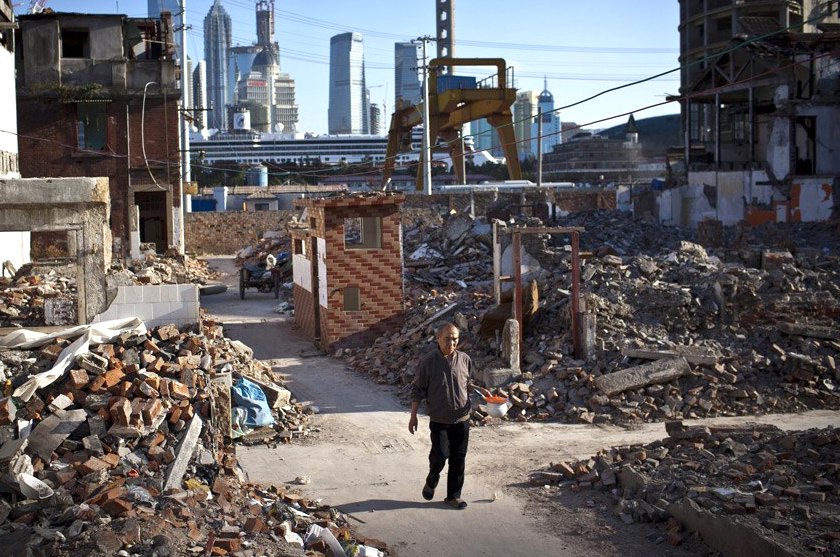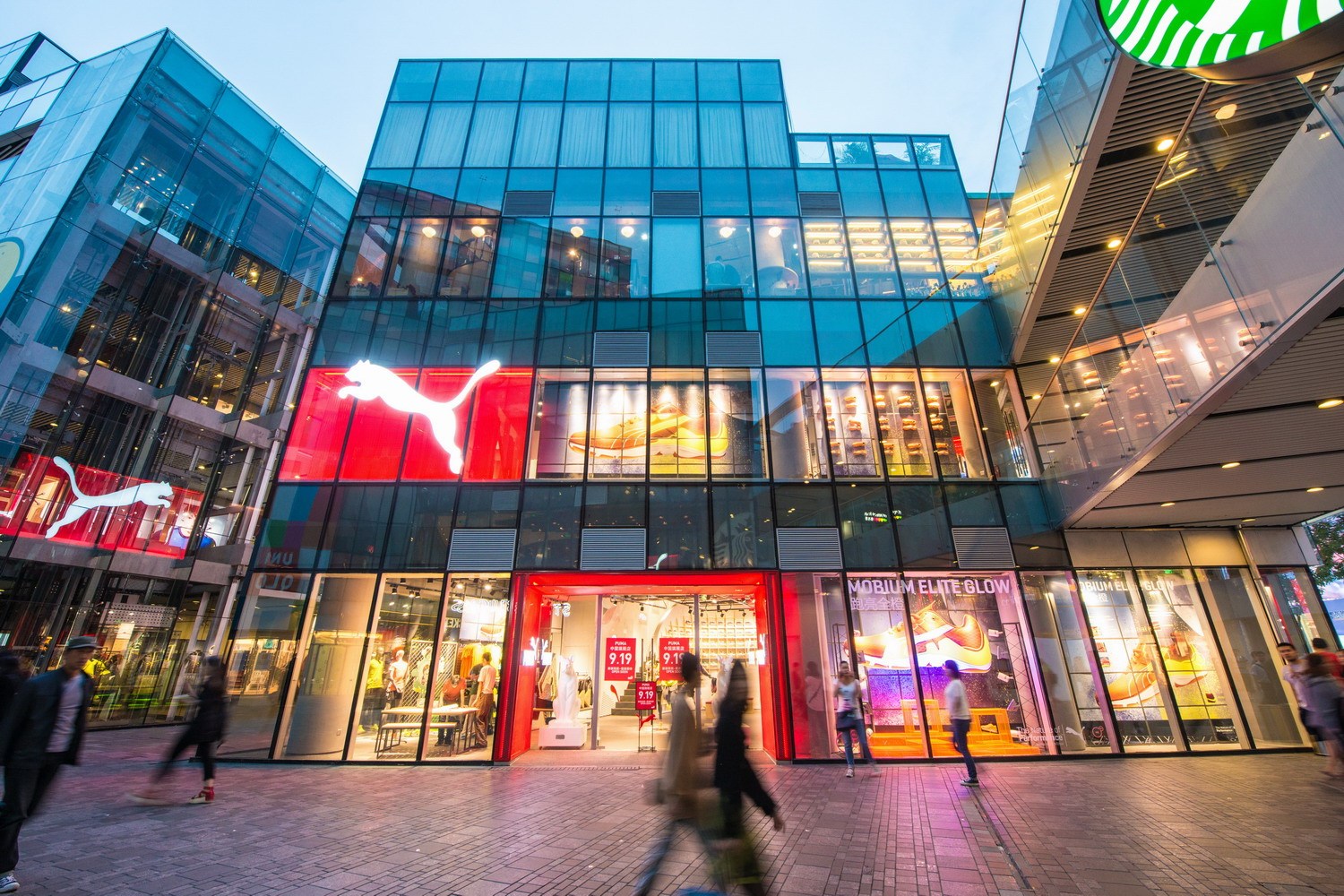Socio-cultural crises pose challenges to urban modernization

An old man walks through the rubble of an old residential area in downtown Shanghai where skyscrapers will be built in the near future.

Sanlitun village, a shopping mall at Beijing Sanlitun street
As drivers of human civilization, cities have always been an important topic of discussion in the field of sociology. It can be said that sociology, to a great extent, evolved as it paid increasing attention to the social and cultural transformation of cities in modern times. In some sense, because sociology and urbanization developed simultaneously and rely upon each other, they share a similar fate, which is inextricably bound in the context of modernization.
Imbalanced tensions
The social and cultural tensions that permeate many modern metropolises have created various problems that have posed a number of challenges to the social governance of big cities, where opportunities and pressure of living co-exist. While people need to learn to be independent and self-reliant, they also have to bear anxiety and apathy. On the one hand, modern civilization has made cities incredibly convenient. On the other hand, almost all the facilities and services are made available only to those with money.
Economic relationships enable people to be more rational, but they can also lead people to be more callous. Those who escape from the “constraints” of the countryside and aspire for the “freedom” of cities must learn to fit into a new society rife with “strangeness” and “alienation” and learn to deal with all the social and cultural phenomena that do not conform to traditional thinking.
Therefore, all these factors are not only social but also cultural. As a form of indicator of human relations, the city itself comprises a variety of relationships between human society and culture. As the place where human beings’ material lives and spiritual culture converge with each other, the city is also where all sorts of social and cultural phenomena occur and interact. It can be said that large modern cities are characterized by charm, bewilderment and contradiction. It is because of this that cities attract increasing attention from researchers and stimulate the imagination of city governors.
Urban miracle vs crisis
For the past two decades, China has been on the fast track toward economic growth and social transformation, in the context of which, cities, as the driver of social economy, are hastening the “urban miracle” in China with an increasing number of Chinese cities having been listed into the top 500 world cities. At the same time, public discontent with big cities is also on the rise as social and cultural crises frequently occur. One example is the zealous pursuit of urbanization seen in Chinese cities today.
Since the start of reform and opening up, urbanization has become an indicator of modernity. With economic growth and a higher GDP as the goal, cities tend to prioritize urbanization as a shortcut for development and have created a number of “urban miracles” within a relatively short amount of time. Social transformation was achieved, rapidly converting quiet farmlands into crowded urban landscapes. Those areas that did not adequately realize urbanization still regret having lost opportunities in earlier times and hope they can catch up quickly to avoid falling behind.
The unique phenomenon in which economic miracles co-exist with social and cultural crises not only largely affects the social development and public administration of Chinese cities but also poses great challenges to the political landscape and cultural experience of cities at a basic level. Undoubtedly, this has become quite a crucial issue in theory and practice that urgently needs careful research from scholars of urban sociology and culture.
Therefore, we should not only keep in mind the imagination of and insights into modern urban society and culture but also encourage the will to take initiative in practice. With a positive mindset, we can have a more profound understanding of the daily life in cities. And with a sociological imagination, scholars are able to appropriately deal with the major social and cultural issues of big cities in China, participate in public debates and improve the public’s rational thinking.
Broad perspectives
With modernity as one of the spheres of study and urban society and culture as the target of research, urban studies can be conducted based on a broad perspective that reflects the modernity of cities. In this way, urban study can be advanced through interdisciplinary and cross-cultural perspectives, which is of practical significance and academic value.
Recently, urban studies has emerged as one of the most popular areas of research, which is in line with the new trend of contemporary sociological theory. The trend is to go beyond the analytical sphere, which takes the modern nation--state as the basic unit of research, and instead aim for a more concrete, microscopic and more explicit target of history and pragmatic analysis. More importantly, serving as the “weather vanes” that indicate the history of evolution and the future development of all of human society and culture as well as the important places where mankind, society and environment interact with each other, big cities have always been at the center of modern society and culture.
Therefore, with an eye toward understanding modernity, we need to do more than simply reexamine the path of development of urban society and culture, the social mechanism that promotes its advancement as well as the cultural influence. Cities should be studied as a whole, in the complex context of economic environment, human geography, natural ecology and the political pattern to develop a theory and practice of Chinese urban social governance and cultural development. This makes it possible to popularize a new branch of research that would pique the interest of more scholars. And this is where the scholars from the field of urban study should, together, make the effort.
Wen Jun is a professor of sociology at the East China Normal University.
